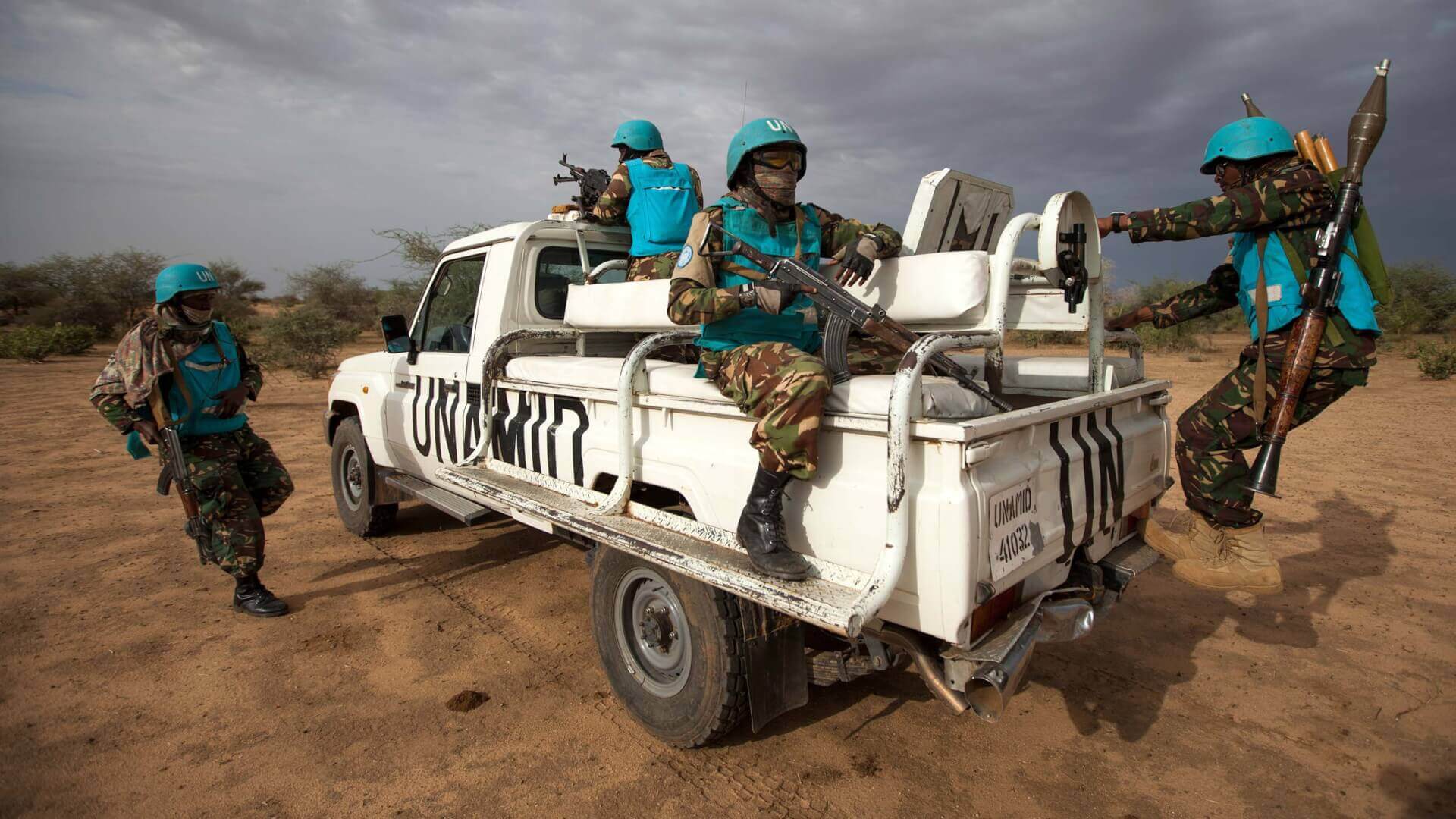In yet another growing indication of the international community’s recognition of the positive reforms undertaken by Sudanese Prime Minister Abdalla Hamdok, the United Nations Security Council (UNSC) brought its peacekeeping mission in the country to an end. This follows the United States’ announcement on Monday that it had formally restored Sudan’s sovereign immunity and lifted all sanctions on the country from when Khartoum was still on Washington’s list of state sponsors of terrorism (SST).
The Hybrid Operation between the African Union (AU) and the UN announced that the 13-year UNAMID mission will come to an end at the close of the year, after the UNSC officially left the protection of Sudanese civilians entirely in the hands of the government.
UN Joint Special Representative Jeremiah Mamabolo said that the Sudanese government is now “in the right hands”. Hence, the peacekeeping mission will now assume a peacebuilding role via the UNITAMS assistance mission.
This decision has been deliberated over for months now due to a host of promising developments under the Hamdok administration. In July, the government approved sweeping amendments to its 1991 Criminal Law, by scrapping the apostasy law, criminalising female genital mutilation (FGM), and allowing non-Muslims to consume alcohol, among other reforms.
In addition, Sudan has also normalised ties with Israel and agreed to pay a compensation of almost $335 million to families of victims of terrorist attacks—which include both American citizens and foreign nationals—that the former Sudanese regime played a role in supporting two decades ago.
Furthermore, the government also signed a peace deal with the nation’s rebel alliance, the Sudan Revolutionary Front (SRF). Since the SRF and other rebel groups took up arms in Darfur in 2003, around 300,000 people have lost their lives, according to the United Nations. The deal covers issues of land ownership, security, power-sharing, transitional justice, and provisions to integrate rebel fighters into the national army. The agreement was co-signed by Chad, Qatar, Egypt, the African Union (AU), the European Union (EU), and the United Nations (UN) as ‘guarantors’, indicating the global interest in the successful conclusion of these talks and the maintenance of the terms of the deal.
These developments contributed to US President Donald Trump announcing towards the end of October that he would be removing Sudan from Washington’s SST list. Sudan was first added to the list in 1993 due to former leader Bashir’s alleged support for terrorist groups like al-Qaeda.
Sudan has also been highly cooperative in dismantling the toxic legacy of Bashir, who was ousted via a coup in 2019. The former dictator is on trial and faces the death penalty for his central role in a military coup that led to his ascent to power in 1989, when he overthrew the democratically elected Prime Minister, Sadek al-Mahdi. Bashir has also previously been indicted by the International Criminal Court (ICC) for up to ten charges—including genocide, war crimes, and crimes against humanity—for ordering a brutal crackdown on ethnic minorities in western Darfur in 2003.
Despite this monumental and swift transformation under Hamdok’s transitional government, however, some groups argue that there is still much work to be done. In fact, earlier this month, Amnesty International issued a statement urging the UN to extend UNAMID’s mandate by at least six months “in light of the failure by government security forces to protect civilians in recent months.” The rights group reported that more than 70 civilians have perished at the hands of armed forces between July and September 2020 in West Darfur, Central Darfur, and North Darfur. At the same time, there remain thousands of people who are displaced as a result of prolonged conflict.
However, the Sudanese government has secured the support of the five permanent UNSC members, as well as rotating members Niger, South Africa, Tunisia, and St. Vincent and the Grenadines, to bring UNAMID to a close. It has also secured the support of the European Union (EU) and the AU, alongside regional allies such as Chad, Qatar, and Egypt.
Nevertheless, there are some international actors who have expressed their misgivings. For example, Germany’s ambassador to the UN, Christoph Heusgen, remarked that Sudan is at a ‘critical juncture” and that the “transition process could still derail”.
The UNAMID operation first came into force in 2007 and represented the first joint UN-AU mission. It is staffed by over 6,000 military and 1,500 civilian personnel. Its troops hail from Bangladesh, China, Egypt, Ethiopia, Gambia, Indonesia, Kenya, Nepal, Nigeria, Pakistan, Rwanda, Senegal, and Tanzania.
UNSC Votes to End Peacekeeping Mission in Sudan, Empowering Transitional Hamdok Government
The UN Security Council voted to leave the protection of Sudanese civilians entirely in the hands of the government. This follows Washington’s decision to restore the country’s sovereign immunity.
December 25, 2020

IMAGE SOURCE: ALBERT GONZÁLEZ FARRAN / UN PHOTOEarlier this month, Amnesty International issued a statement urging the UN to extend UNAMID’s mandate by at least six months “in light of the failure by government security forces to protect civilians in recent months.”
